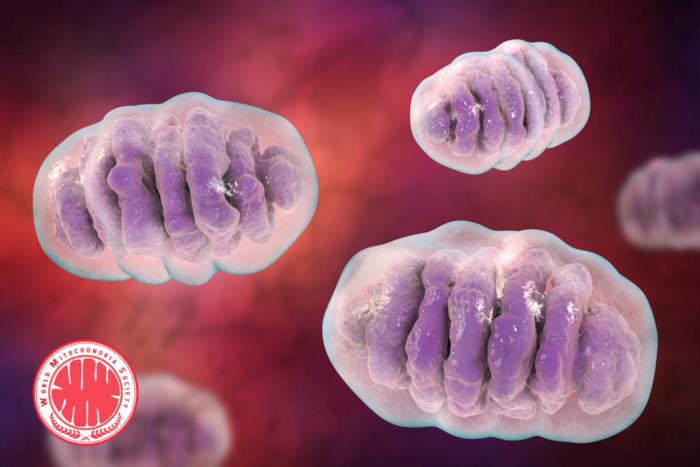Leading scientists and researchers from around the world will gather for the World Mitochondria Society (WMS) Annual Meeting, a comprehensive conference focused on the multifaceted roles of mitochondria in human health and disease to be held on October 29-31 in Berlin. This event will feature groundbreaking presentations on the latest discoveries in mitochondrial research, including their implications for Alzheimer’s disease, viral infections, brain plasticity, and more.
Leading scientists and researchers from around the world will gather for the World Mitochondria Society (WMS) Annual Meeting, a comprehensive conference focused on the multifaceted roles of mitochondria in human health and disease to be held on October 29-31 in Berlin. This event will feature groundbreaking presentations on the latest discoveries in mitochondrial research, including their implications for Alzheimer’s disease, viral infections, brain plasticity, and more.
The conference will provide a platform for in-depth discussions on a wide range of topics, offering new insights into how mitochondria function and how they can be targeted for therapeutic interventions.
Key sessions include:
– Mitochondria in Alzheimer’s and Parkinson’s Diseases: Eric Schon from Columbia University, USA, and Laurie Sanders from Duke University School of Medicine, USA, will explore the role of mitochondrial dysfunction and DNA damage in neurodegenerative diseases, offering insights into potential treatments and early diagnosis strategies.
– Mitochondria, Inflammation and Viral Infections: Indira Mysorekar from Baylor College of Medicine, USA, will explore how mitochondria affect viral propagation, while Stephen Tait from the University of Glasgow, United Kingdom, will examine mitochondrial roles in inflammation, aging, and chronic diseases. Together, they will highlight mitochondrial influences on immune response and disease progression.
– Extracellular Vesicles, Brain Plasticity and Recovery: Stefano Pluchino from the University of Cambridge, United Kingdom, and Devika S Manickam from Duquesne University, USA, will discuss the therapeutic potential of mitochondrial extracellular vesicles in promoting neurological recovery and overcoming the blood-brain barrier.
– Evaluation of Mitochondrial Function and Quality Control: Naig Gueguen from CHU Angers, France, and Egbert Mik from Erasmus MC, Netherlands, will cover the latest methods, challenges, and advancements in assessing mitochondrial function in both research and clinical settings.
– Mitochondrial Transplantation and Transfer: Mark Kindy from the U.S. Department of Veterans Affairs and University of South Florida, along with Jonathan R. Brestoff from Washington University in St. Louis School of Medicine, USA, will delve into the emerging field of mitochondrial transplantation and its potential to restore cellular energy metabolism and improve health outcomes.
– Mitochondrial Iron Metabolism and Ferroptosis: Sonia Levi from Vita-Salute San Raffaele University, Italy, and Carsten Culmsee from the University of Marburg, Germany, will discuss the crucial roles of iron and mitochondria in health and disease, including the processes of ferroptosis and their therapeutic implications.
– Military Medicine: Jignesh D. Pandya from the Walter Reed Army Institute of Research, USA, will present on mitochondria-specific targets, therapeutics, and biomarkers following traumatic brain injury, with a focus on applications within the US military.
– Mitophagy in Cancer: Giulia Bertolin from CNRS, Université de Rennes, France, will highlight new biosensing solutions and pharmacological strategies to counteract mitophagy in cancer cells, offering potential therapeutic breakthroughs.
– Regulation of Mitochondrial Function: Naotada Ishihara from Osaka University, Japan, will discuss the regulation of nucleoid morphology within mitochondria, crucial for protecting mitochondrial function.
– Advances in Photomedicine and Metabolism: Maik Hüttemann from Wayne State University, USA, and Michael B. Powner from City University of London, United Kingdom, will present cutting-edge research on how light treatments influence mitochondrial function, with implications for improving health outcomes and regulating blood glucose.
– Mitochondrial Dynamics with a focus on Mood Disorders and Aging: Ana Andreazza from the University of Toronto, Canada, Ježek Petr from the Institute of Physiology of the Czech Academy of Sciences, Czech Republic, and Antentor Hinton from Vanderbilt University, USA will explore the connections between mitochondrial function, mood disorders, aging and the broader field of mitochondrial dynamics.
– Mitochondria in Liver Disease: Elena Palma from King’s College London, United Kingdom, will explore the significance of giant mitochondria in liver disease and how targeting these structures could lead to new therapeutic interventions.
– Challenging Mitochondrial Paradigms: Howy Jacobs from Tampere University, Finland, will offer a thought-provoking critique of existing views in mitochondrial research, encouraging a reassessment of their true impact on cellular function.
“The future of medicine will unfold through mitochondria”, said Volkmar Weissig, the President and Founder of WMS. “This congress exemplifies our commitment to pioneering research and innovation in mitochondrial science, setting the stage for breakthroughs that will transform healthcare.”
For more information about the WMS Annual Meeting and to register, visit www.wms-site.com.
About World Mitochondria Society
The World Mitochondria Society, established in 2010, is dedicated to addressing the evolving challenges in mitochondrial research with a forward-thinking agenda. Under the leadership of President Volkmar Weissig and Founder Marvin Edeas, we prioritize Emerging Trends and Strategies to stimulate innovative discussions and explore new avenues in mitochondrial science.





